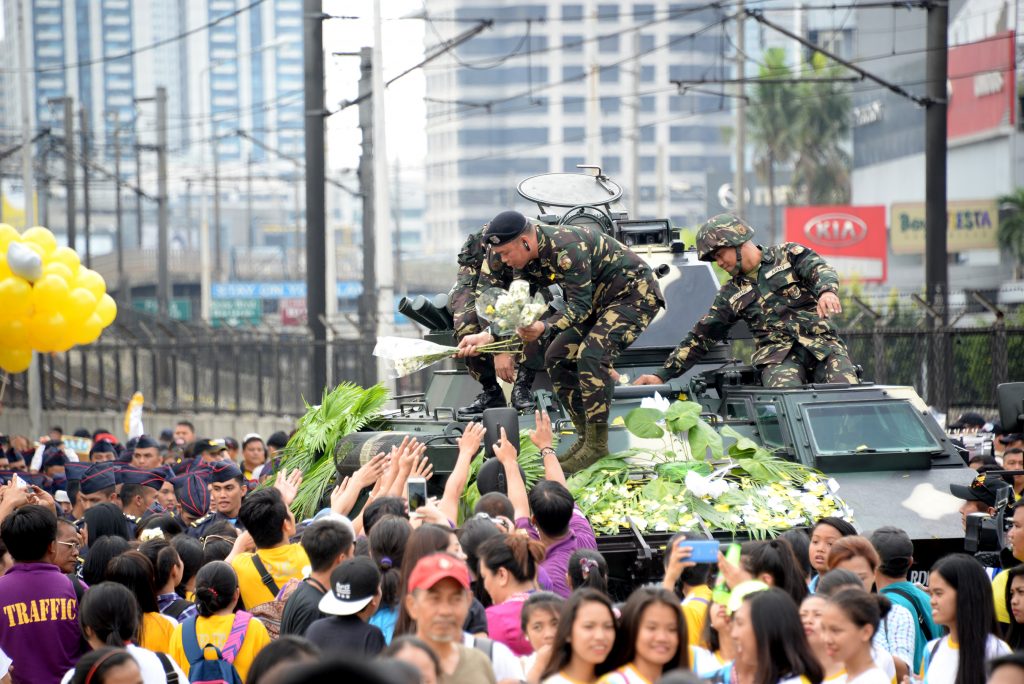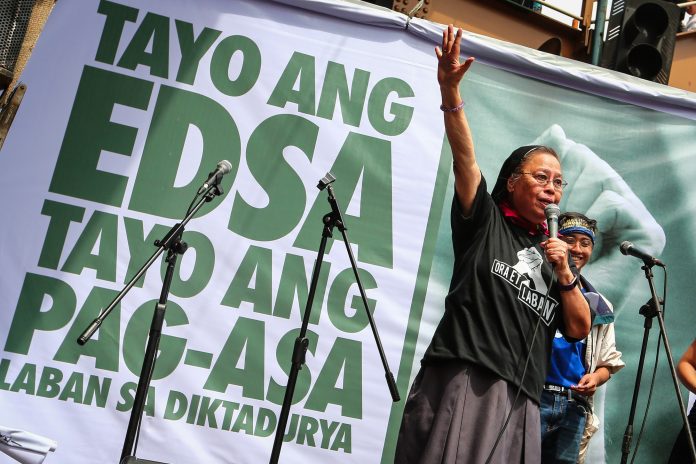This week is the annual “ritual remembrance” of the 1986 EDSA ‘People Power” event. Expect a mix of celebratory recollections and self-critical questioning: “What has EDSA contributed to Philippine democracy, and also to Philippine development? What have we done, individually and collectively, to keep the spirit of EDSA alive?”
Even after so many years, the acronym EDSA does not need to be spelled out. Even people in other countries associate EDSA with “people power” successfully restoring democracy in the Philippines, after years of martial rule.
PCP II, however, needs to be spelled out, even for Filipino Catholics. It is the Second Plenary Council of the Philippines, held in 1991, which declared the Church as not just “for the poor,” but “of the poor,” committed itself to establishing Basic Ecclesial Communities, and advocated greater lay participation and leadership.
Why do I choose to remember EDSA in connection with PCP II? A few years back, I was in Davao, spending the “triduum” of EDSA 1986 (February 23-25), in the company of the Philippine Catholic Lay Mission. They have invited me to facilitate their strategic planning, using the principles and methods of Appreciative Inquiry.
These circumstances color my reflections about EDSA.
According to Gabriel Garcia Marquez: “What matters in life is not what happens to you but what you remember and how you remember it.”
Applying this to my remembrance of EDSA, “What matters is not just what happened to us, but what we choose to remember, how we choose to remember, and with whom we choose to remember.”
My personal remembrance of EDSA is primarily positive because it led to my eventual release
from my second imprisonment, much earlier than I had expected.
But since I was, and continue to be, an activist for social justice and popular democracy, I also look back at EDSA through the complex lens of Mary’s Magnificat: “God has put down the mighty from his throne, and has lifted up the lowly. God has filled the hungry with good things, and has sent the rich away empty.”
Many choose to remember the first line – “the mighty has been put down from his throne.” That is an achievement of EDSA that we should continue to celebrate. True, it is the political elite who have benefited most from the removal of Marcos, but even the middle class and the poor can welcome the widening of the formal democratic space.

What about those who choose to remember “lifting up the lowly?” Compared to our initial high hopes, the gains for the poorer majority are much smaller and slower, especially at the national level.
In places like Naga City, people power has been institutionalized through local democratic mechanisms like the Naga City People’s Council during the term of Mayor Jessie Robredo. The many good practices of “participatory local governance” recognized by “Galing Pook” form a growing list, and are islands of hope in an archipelago still sadly dominated by traditional local elite.
It is issues of social justice that feed the deeper disappointments about the promise of EDSA. Some of the very rich may have been sent away, but not empty. Most of the rich simply switched sides and continue to control the economy. The hungry still wait to be “filled with good things.”
For Filipino Christians who share a “preferential option for the poor,” the critical questions about EDSA cannot be addressed only to the elite in government and the economy. The Catholic Church in the Philippines made its own promises at PCP II. Like EDSA, there are some results from PCP II that we can celebrate. But there are also many reasons to be disappointed.
In the spirit of Appreciative Inquiry, we continue to live in hope, in ourselves and in our country. People power has become an integral part of the Philippine political tradition, because of the form it took and the result it achieved at EDSA in 1986.
The challenge to those of us who choose to remember EDSA together, is not to keep looking back and wonder how we can resurrect that specific form of people power to achieve similar results.
Let us focus our energies on detecting the diverse and different forms of people power, inside and outside institutions, and help bring about a new synergy that will pursue the promises of EDSA.
Edicio “Ed” de la Torre was an activist priest in the 1970s who fought for farmers’ rights and land reform. He joined the underground movement in 1972 and was captured twice and spent over nine years in various prisons in the Philippines.









